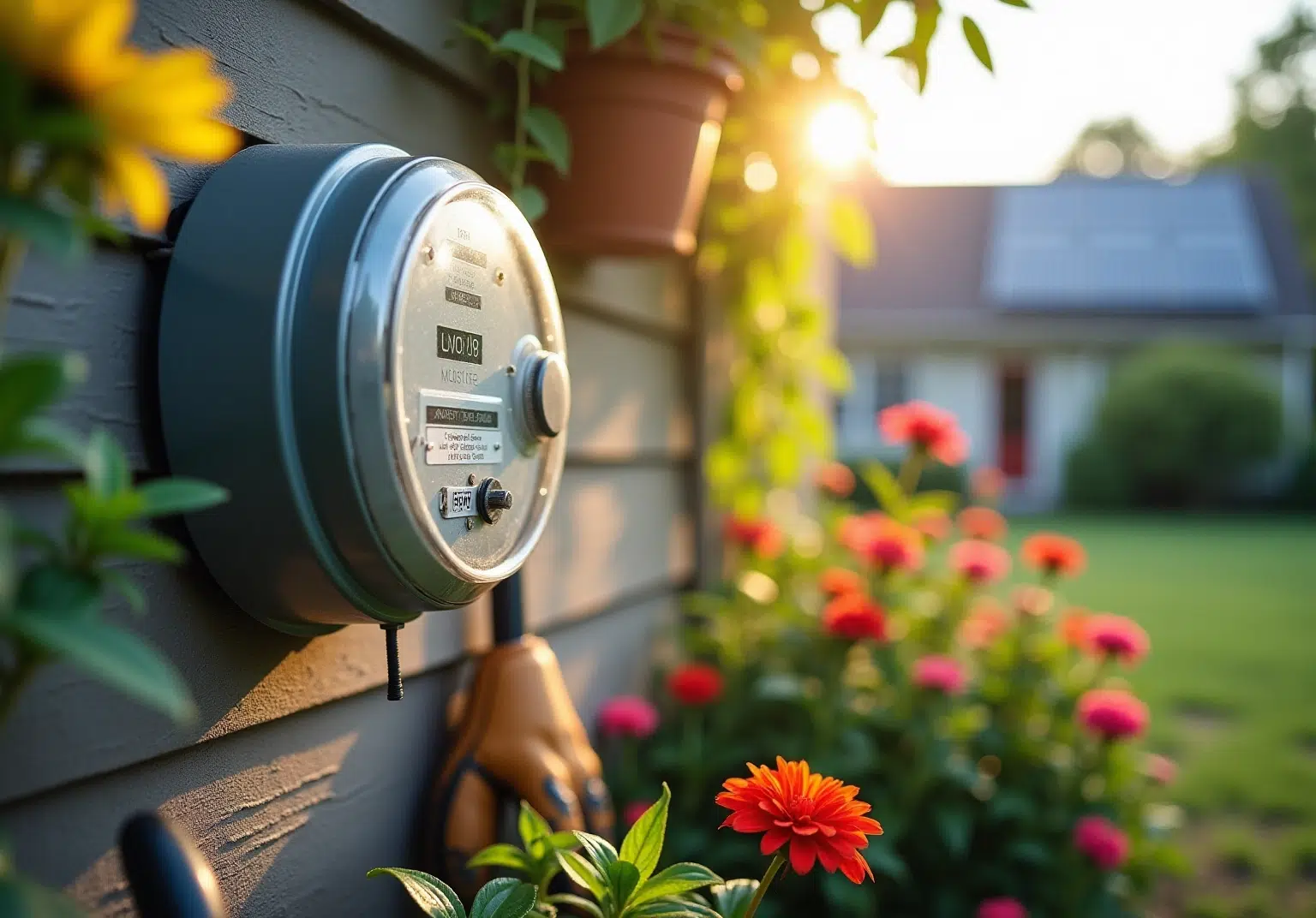Overview
We understand that managing energy bills can be a source of concern for many homeowners. In Massachusetts, the average monthly electric bill is approximately $174.76, influenced by factors such as reliance on natural gas for electricity production and the state’s energy regulations. It’s common to feel overwhelmed by these costs, especially with projections indicating that rates may rise significantly in the coming years.
However, there are solutions available that can empower you to take control of your energy expenses. By understanding the components of electric bills and implementing energy-efficient practices, you can effectively manage costs. Imagine the peace of mind that comes with knowing you are making informed choices that not only benefit your wallet but also contribute to a more sustainable future.
Consider the benefits of transitioning to solar energy. Not only does it offer the promise of energy independence, but it also aligns with a growing commitment to environmental stewardship. Together, we can explore these options and find a path that works for you.
If you’re ready to take the next step towards a more sustainable energy solution, we’re here to support you. Let’s work towards reducing those bills together and creating a brighter, more energy-efficient future for our community.
Introduction
We understand that the rising average monthly electric bill in Massachusetts, currently hovering around $174.76, poses a significant challenge for many homeowners. It’s common to feel overwhelmed, especially as costs are projected to climb even higher in the coming years.
By understanding the factors that contribute to these expenses—from the state’s reliance on natural gas to the complexities of a deregulated market—we can empower ourselves to take control of our energy consumption. Together, we can explore innovative solutions like solar energy and energy-efficient practices that not only alleviate financial pressures but also contribute to a sustainable future.
How can we navigate these challenges while fostering a sense of energy independence? Let’s work towards meaningful solutions that support both our wallets and our planet.
Define Average Monthly Electric Bill
We understand that managing your monthly power bill can be a source of stress for many homeowners. The average monthly electric bill in Massachusetts is currently around $174.76, a figure that can weigh heavily on your budget. This expense is influenced by various factors, including the state’s power regulations and climate, as well as a significant reliance on natural gas, which accounts for 68% of the electricity produced here. In this deregulated electricity market, residents have the opportunity to choose from multiple suppliers, which can affect overall costs.
As we look ahead, the average residential electricity rate is projected to reach 29.74¢ per kWh by 2025—an increase of 78.50% over the national average of 16.66¢. It’s common to feel overwhelmed by these rising costs, especially when considering that homeowners typically experience about 0.89 electrical outages each year, lasting an average of 58.51 minutes. This highlights the importance of having reliable power supplies.
However, there’s hope on the horizon. With a 3.67% increase in renewable fuel consumption over the past year, now is a great time to explore efficient practices and alternative power solutions like solar energy. By embracing these options, you can not only reduce your electric bills but also take a step towards energy independence. Together, we can navigate these challenges and find solutions that work for you.
We encourage you to reflect on your current energy habits and consider how innovative solutions, such as those offered by Powercore Electric, can support you in achieving your goals. Let’s work towards a brighter, more sustainable future together.
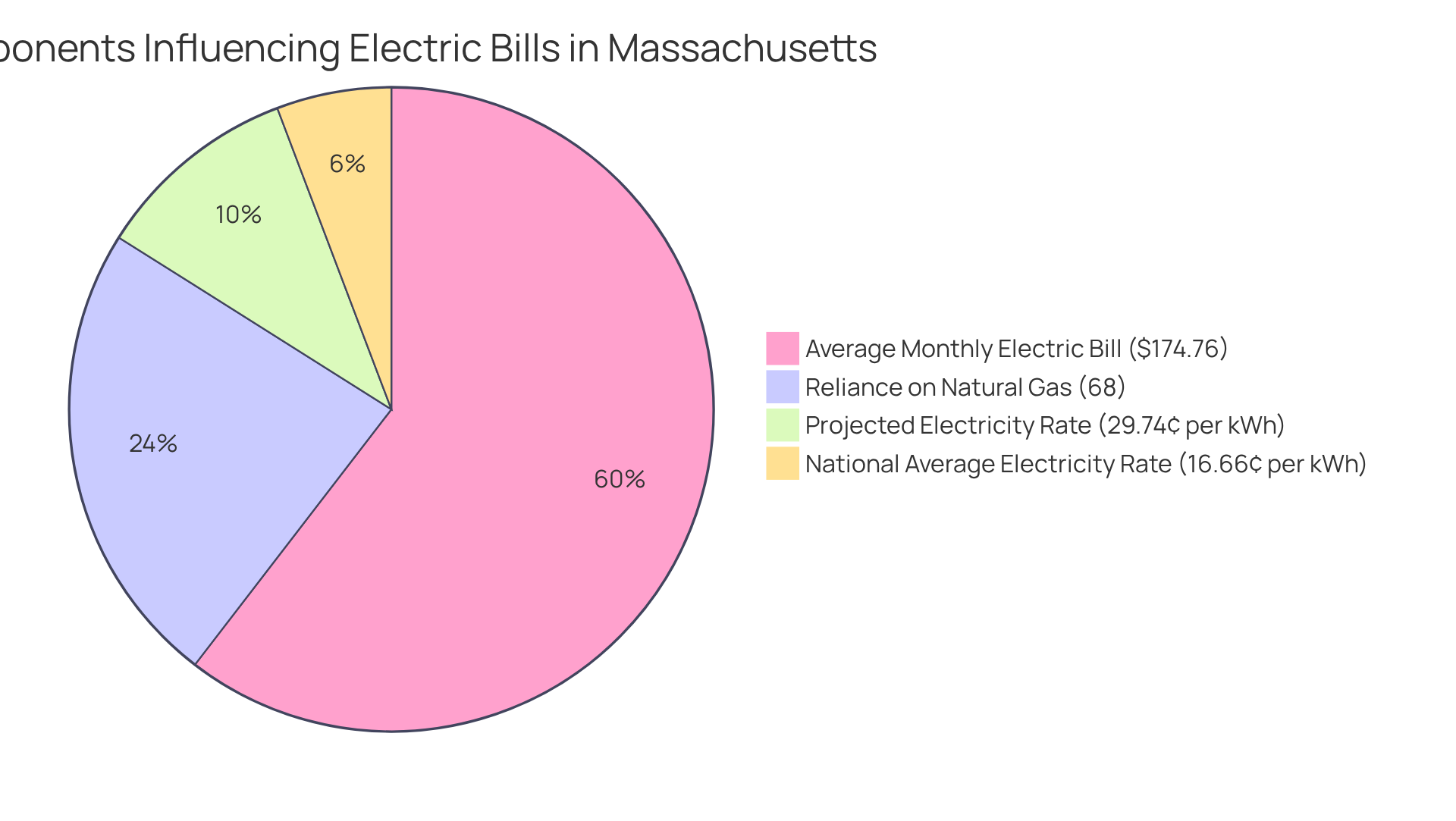
Contextualize Electric Costs in Massachusetts
We understand that the average monthly electric bill in Massachusetts can be a significant concern for many homeowners. Ranking among the highest in the United States, these costs largely stem from the state’s reliance on imported power and the challenges of maintaining an aging infrastructure. However, there is hope on the horizon. Massachusetts is dedicated to renewable power sources, such as wind and photovoltaic energy, which has led to increased investments in clean technology. While these initiatives may initially raise costs for consumers, they pave the way for a more sustainable future.
For instance, the state’s solar carve-out initiatives have successfully established 1,600 megawatts of solar technology. This not only contributes to a cleaner power landscape but also encourages us to think about the long-term benefits of energy independence. It’s common to feel overwhelmed by seasonal fluctuations in power demand, especially during the winter months, which can contribute to an increased average monthly electric bill in Massachusetts. It’s essential for residents to understand their usage patterns and explore options to reduce expenses.
In light of these challenges, the recent announcement of a $50 credit for residential clients, costing the state $125 million, is part of a broader strategy aimed at saving ratepayers up to $5.8 billion over five years. This initiative highlights the ongoing efforts to address financial challenges while promoting sustainable practices. Together, we can navigate these changes and work towards a more affordable and environmentally friendly energy future. Let’s take this journey together, seeking solutions that benefit both our wallets and our planet.
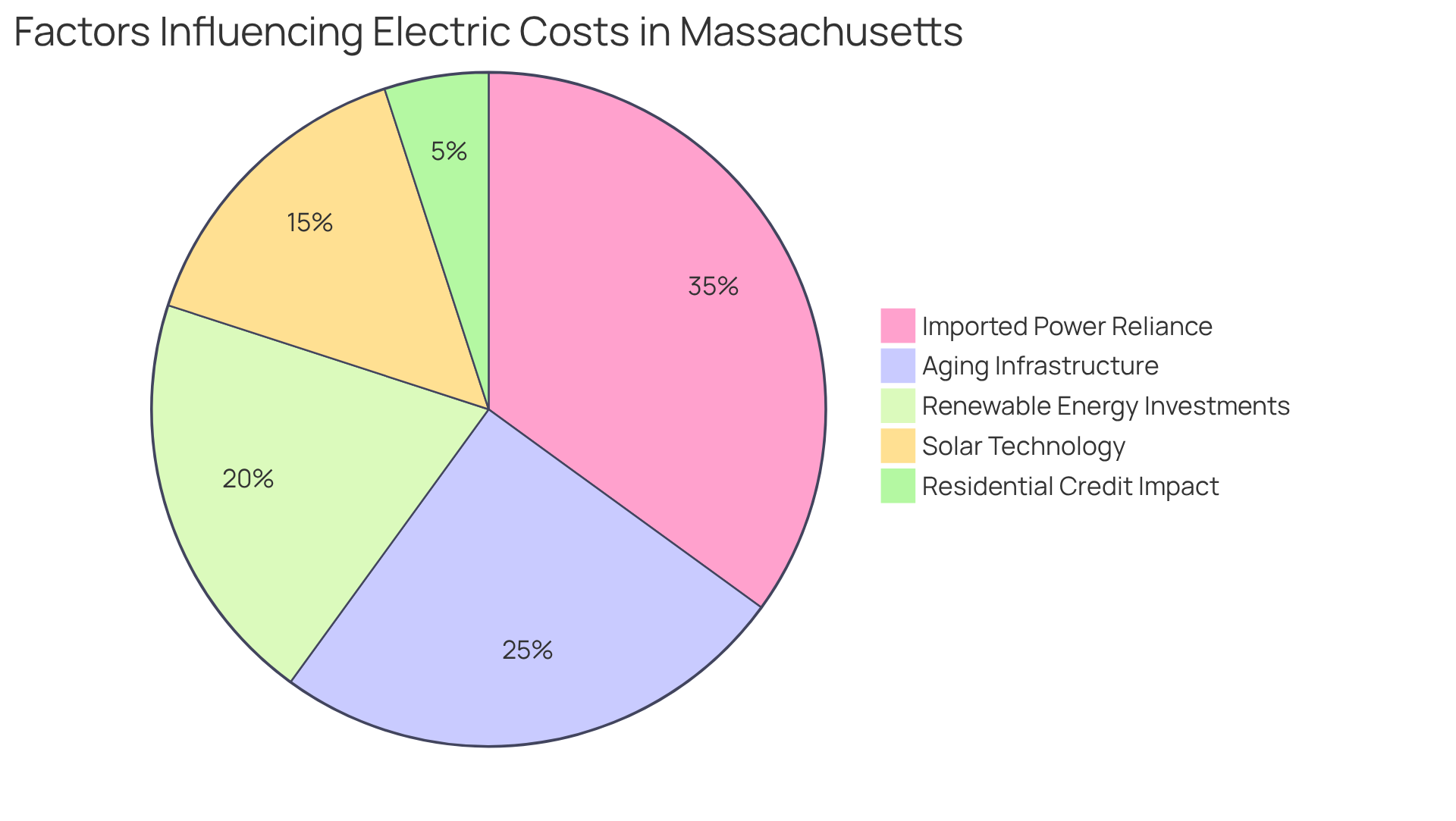
Break Down Components of Electric Bills
We understand that the average monthly electric bill in Massachusetts can cause concern for many homeowners. A typical utility bill encompasses several components:
- The consumption charge, which reflects the amount of electricity used (measured in kilowatt-hours)
- Fixed fees that help maintain the electrical grid
- Additional charges, including taxes and surcharges for renewable energy initiatives
In Massachusetts, you might also come across fees linked to efficiency programs designed to help reduce the average monthly electric bill.
By grasping these elements, you can make informed choices about your energy usage. Have you considered the potential of solar energy? Not only could it lead to significant savings, but it also paves the way toward energy independence. Together, we can explore alternatives that empower you to take control of your energy expenses and contribute to a sustainable future.
Let’s work towards reducing those bills and creating a brighter, more efficient home environment. If you have any questions or need guidance on your options, please reach out. We’re here to support you every step of the way.
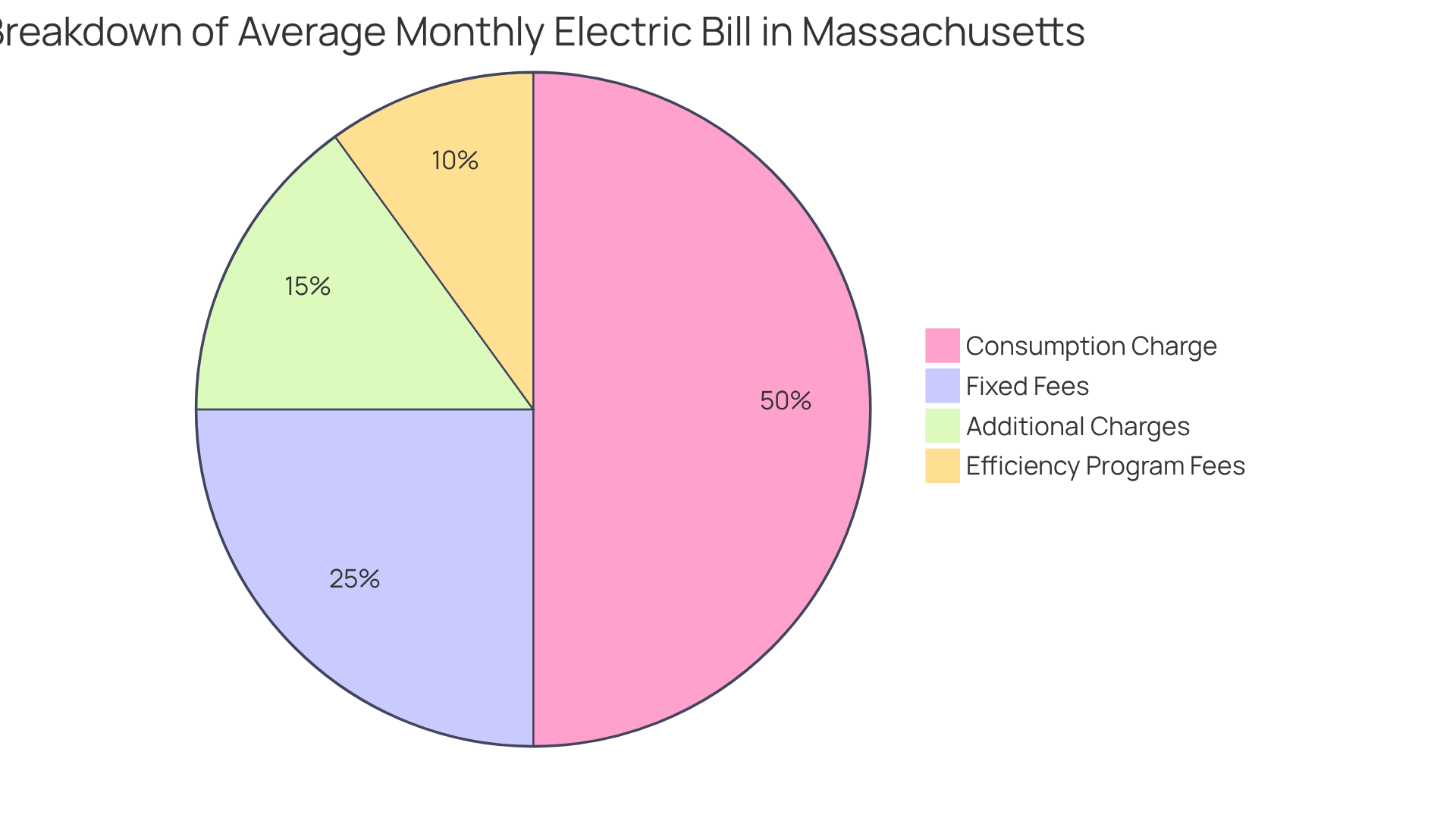
Explore Strategies to Manage Electric Costs
We understand that managing the average monthly electric bill in Massachusetts can be a significant concern for homeowners. To tackle this issue effectively, there are several strategies you can adopt.
- Perform a consumption audit, which can help you identify areas where energy use is excessive and where improvements can be made.
- Implement energy-efficient appliances and practices to significantly reduce your usage and lower the average monthly electric bill in Massachusetts.
- Invest in renewable power solutions, such as rooftop solar panels, which not only help in producing clean energy but also decrease your dependence on the grid, offering long-term savings.
It’s common to feel overwhelmed by the costs associated with energy, but programs that provide incentives for storage systems can assist you in storing surplus solar power for use during peak demand periods. This can further reduce your average monthly electric bill in Massachusetts, giving you a sense of control and independence over your energy consumption.
By taking these proactive steps together, we can not only save money but also contribute to a more sustainable energy future. Let’s work towards a brighter, more eco-friendly tomorrow, where you feel empowered in your energy choices.
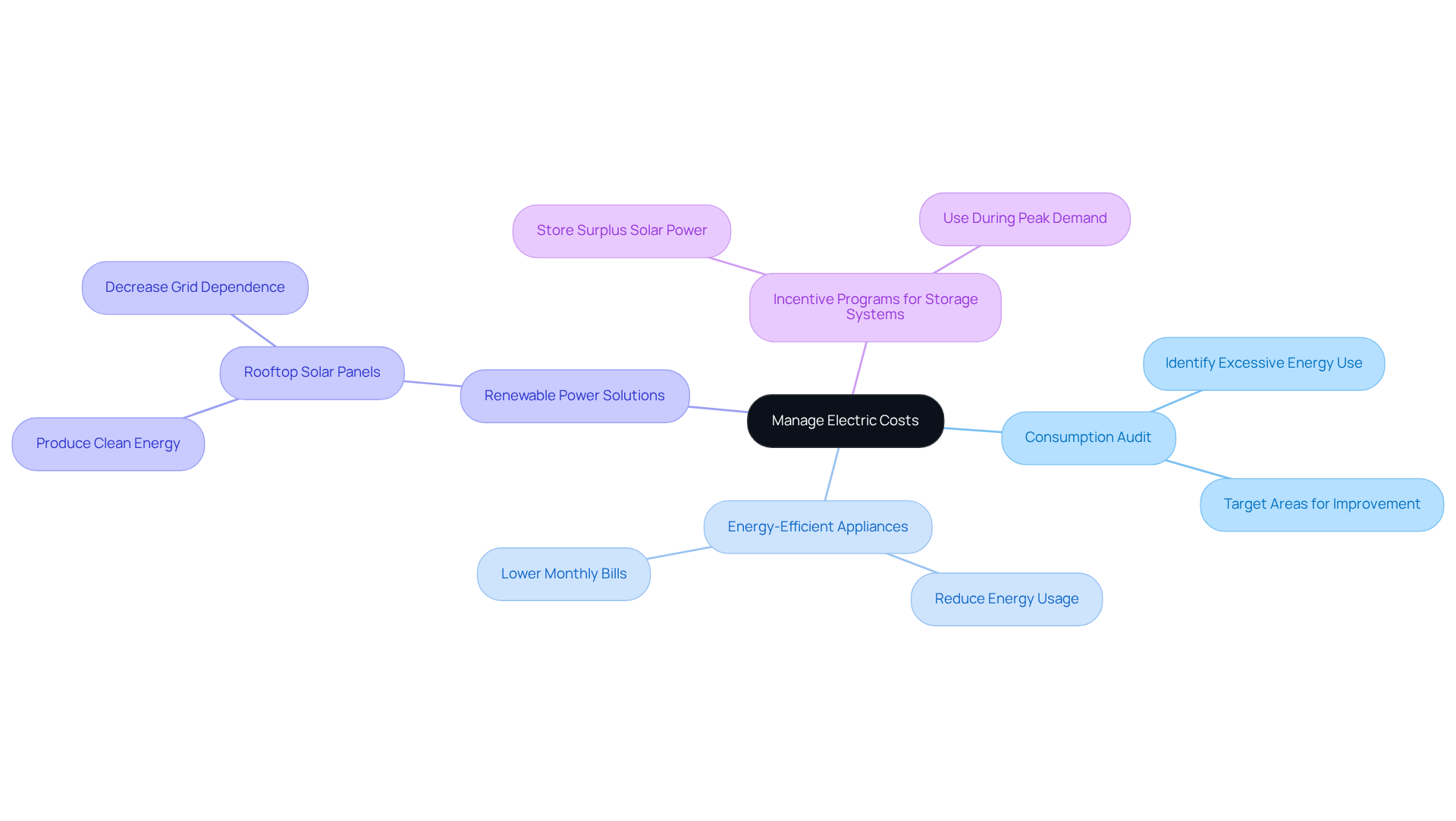
Conclusion
Understanding the average monthly electric bill in Massachusetts can feel overwhelming for many homeowners. With an average bill around $174.76, and projected increases looming, it’s common to feel concerned about managing energy expenses effectively. The challenges stem from high electricity rates, reliance on natural gas, and an aging infrastructure. However, recognizing these dynamics is the first step toward taking control.
Exploring renewable energy options and implementing energy-efficient practices can significantly alleviate rising costs. Massachusetts is committed to renewable energy sources, and initiatives like the $50 credit for residential clients pave the way toward a more sustainable and affordable energy future. By conducting consumption audits and investing in solar technology, homeowners can not only regain control over their electricity bills but also contribute to a greener environment.
Ultimately, managing electric costs transcends mere savings; it’s about fostering energy independence and sustainability. As Massachusetts continues to evolve its energy landscape, we understand that embracing innovative solutions can be daunting. Yet, by making informed choices and prioritizing energy efficiency and renewable options, together we can achieve a brighter and more sustainable energy future for all. Let’s work towards this goal, ensuring that every homeowner feels supported in their journey.


